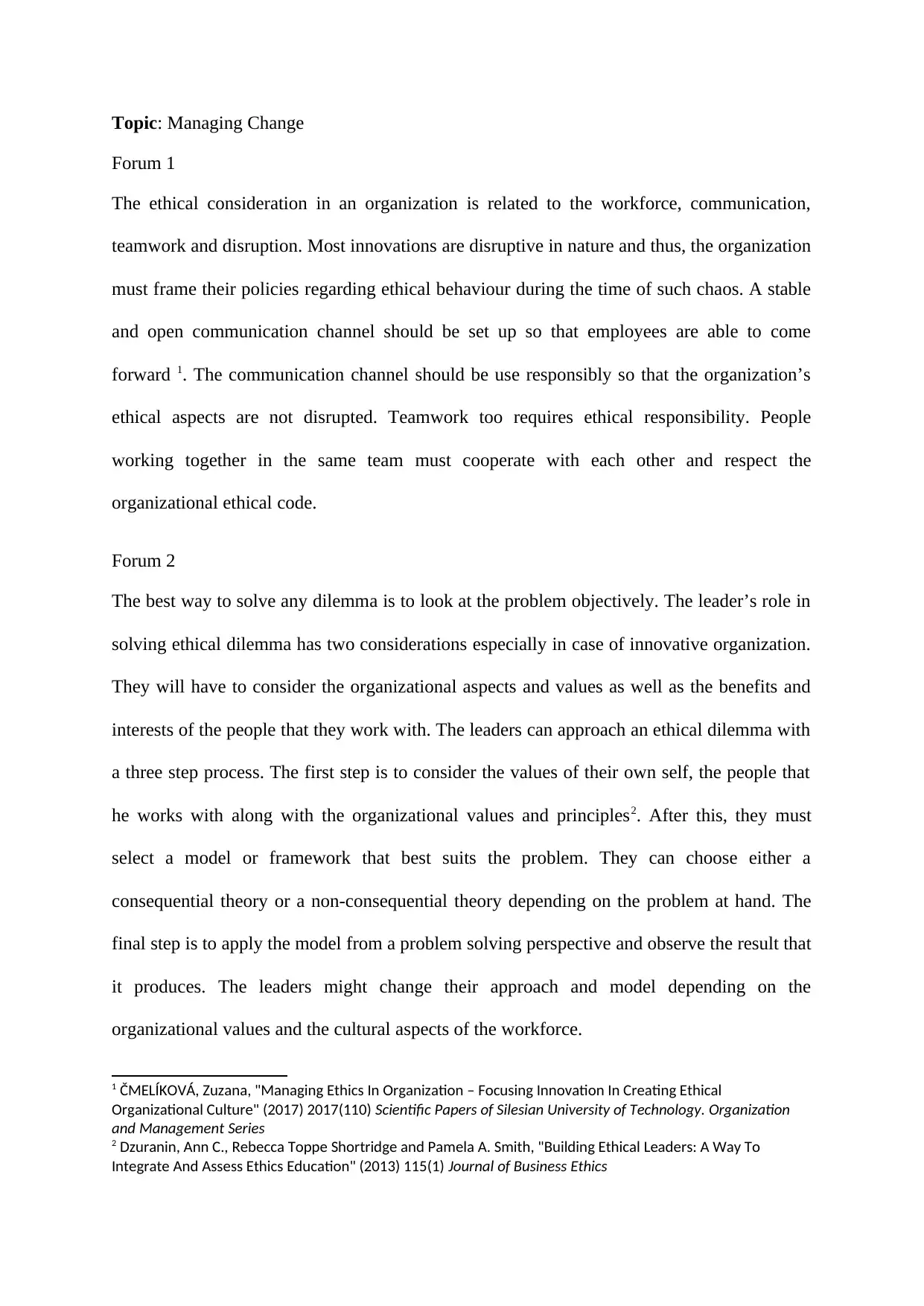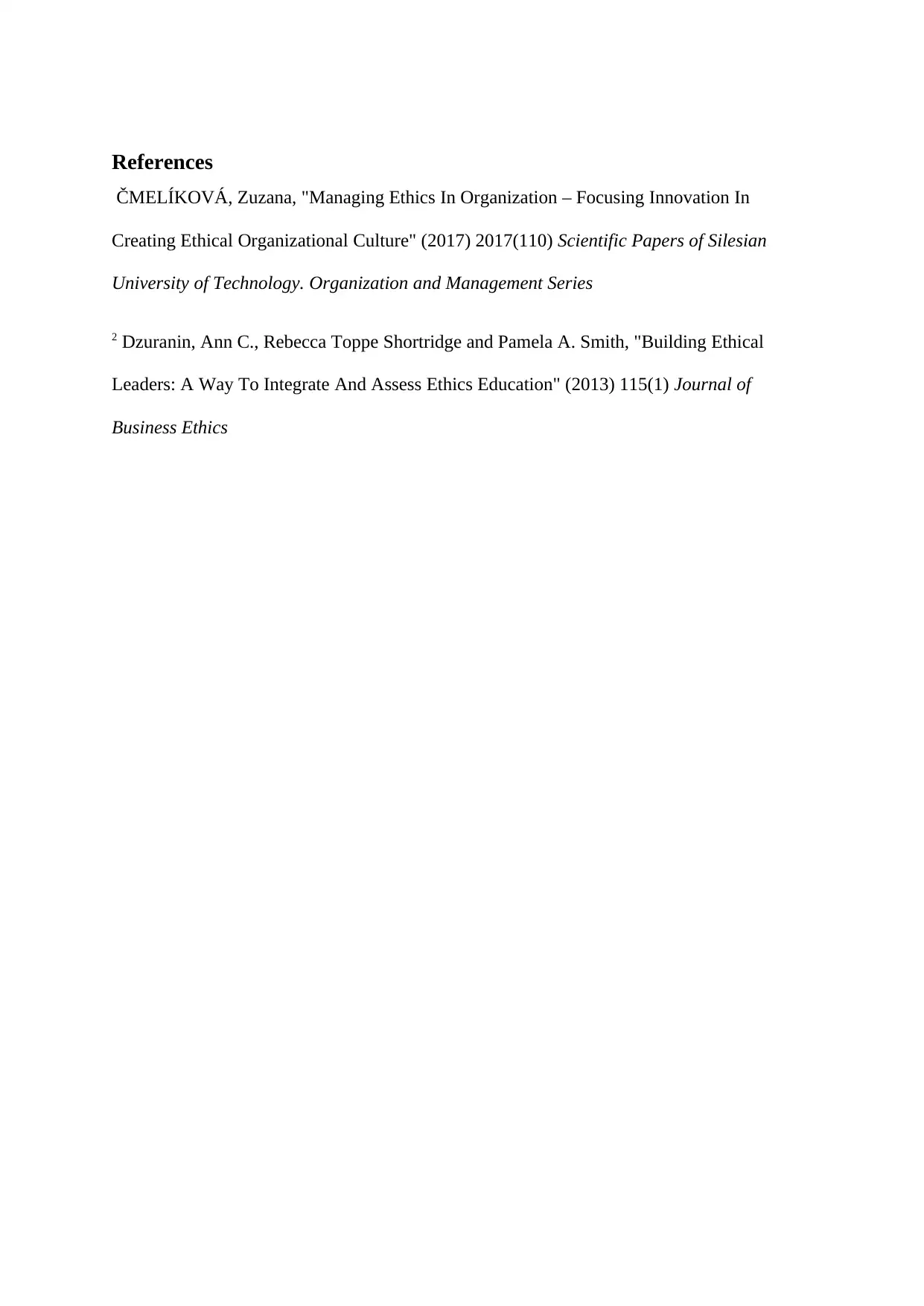Leadership and Ethical Considerations in Organizations: A Study
VerifiedAdded on 2022/09/16
|3
|366
|21
Homework Assignment
AI Summary
This assignment explores the critical aspects of ethical leadership and its implications within organizations. The content delves into the importance of ethical considerations in areas such as communication, teamwork, and overall organizational culture. It examines how ethical dilemmas can be addressed, emphasizing the need for a structured approach involving the assessment of personal, team, and organizational values. The assignment also discusses the application of various ethical frameworks, such as consequential and non-consequential theories, to resolve ethical issues. Furthermore, it underscores the role of leaders in navigating ethical challenges and making decisions that align with organizational values and cultural contexts. The analysis also includes insights from relevant academic research, offering a comprehensive understanding of ethical leadership and its practical applications.
1 out of 3










![[object Object]](/_next/static/media/star-bottom.7253800d.svg)